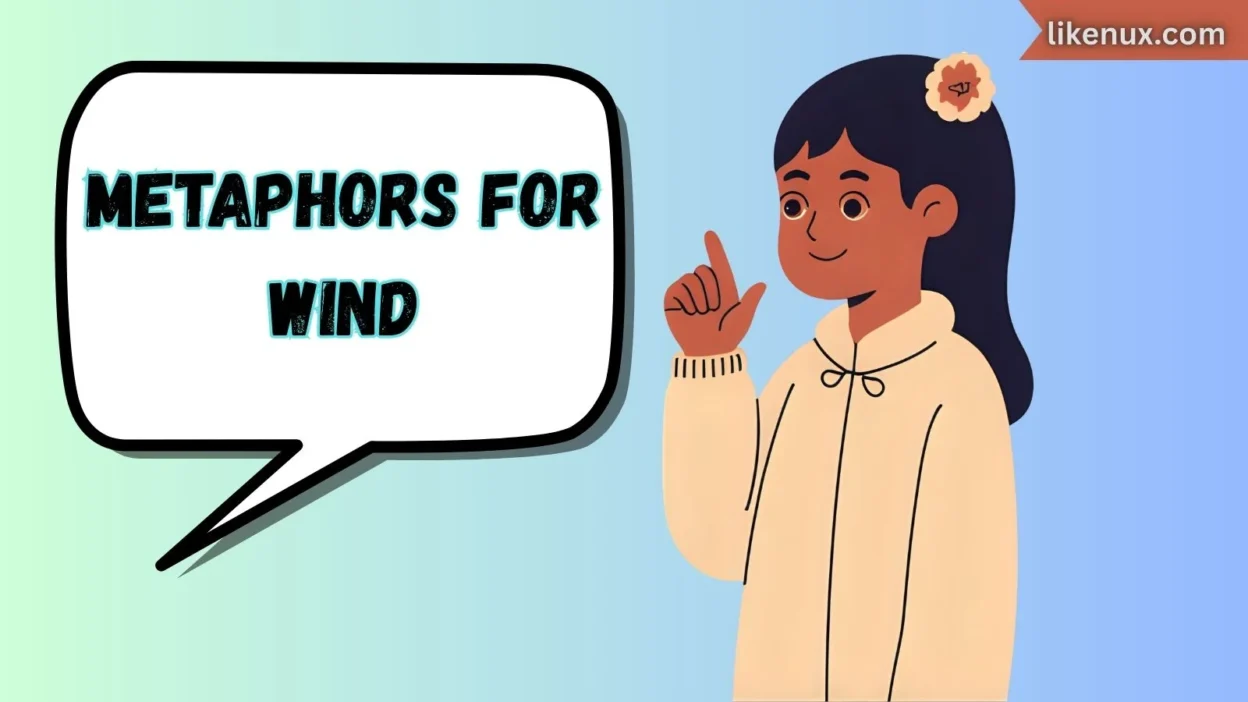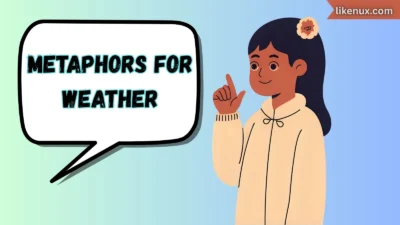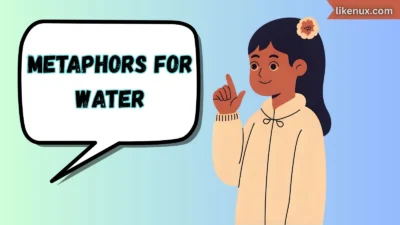The wind has always carried a sense of mystery, freedom, and movement. Whether it’s a gentle breeze brushing across your face or a powerful storm shaping landscapes, the wind has long inspired poets, storytellers, and everyday dreamers. To capture its essence, people often turn to metaphors, expressions that breathe life into words and paint vivid pictures in the reader’s mind. Metaphors for Wind.
In this article, I’ll share 25 metaphors for wind, each explained with meaning, examples, and alternative expressions. My hope is that these phrases help you find the perfect way to describe the wind whether you’re writing a story, a poem, or simply searching for a deeper way to express what you feel when the air shifts around you.
1. Wind is a Messenger
Meaning: The wind carries stories, scents, and whispers across distances.
In a sentence: The wind was a messenger, bringing the salty breath of the ocean inland.
Best use: Works well in poetry or reflective writing.
Other ways to say: courier, herald, carrier of secrets.
Read More: Metaphors for Winter
2. Wind is a Whisper
Meaning: Gentle wind feels like a quiet voice speaking softly.
In a sentence: A whisper of wind touched my cheek as if sharing a secret.
Best use: Perfect for romantic or peaceful imagery.
Other ways to say: murmur, breath, hush.
3. Wind is a Dancer
Meaning: The wind moves gracefully like a dancer across open spaces.
In a sentence: The wind was a dancer, twirling through the meadow with elegance.
Best use: Creative writing, describing nature.
Other ways to say: performer, spinner, twirler.
4. Wind is a Sculptor
Meaning: Wind shapes landscapes like an artist molding clay.
In a sentence: Over centuries, the wind has been a sculptor, carving cliffs and dunes.
Best use: Environmental writing, travel descriptions.
Other ways to say: artist, carver, shaper.
5. Wind is a Wanderer
Meaning: It never stays in one place, always moving.
In a sentence: The wind was a wanderer, never tied to a single land.
Best use: Works in reflective or travel writing.
Other ways to say: traveler, rover, drifter.
6. Wind is a Singer
Meaning: It creates sounds like a song through trees or cracks.
In a sentence: At night, the wind was a singer, filling the forest with haunting tunes.
Best use: Evocative storytelling.
Other ways to say: musician, voice, melody.
7. Wind is a Thief
Meaning: It steals leaves, warmth, or objects.
In a sentence: The wind was a thief, snatching my hat before I could react.
Best use: Humor, light prose, or storytelling.
Other ways to say: robber, taker, pilferer.
8. Wind is a Guide
Meaning: It leads travelers or sailors in a direction.
In a sentence: The wind was our guide, filling our sails toward the unknown horizon.
Best use: Adventure or travel themes.
Other ways to say: compass, pathfinder, leader.
9. Wind is a Healer
Meaning: It refreshes and revives the spirit.
In a sentence: The wind was a healer, cooling my tired body and weary mind.
Best use: Wellness, personal reflection.
Other ways to say: comforter, restorer, refresher.
10. Wind is a Companion
Meaning: It accompanies us silently wherever we go.
In a sentence: The wind was my companion during the lonely walk home.
Best use: Journals, memoirs, or emotional prose.
Other ways to say: partner, ally, friend.
11. Wind is a Painter
Meaning: It paints skies with shifting clouds and colors.
In a sentence: The wind was a painter, scattering clouds across a blue canvas.
Best use: Descriptive nature writing.
Other ways to say: artist, designer, illustrator.
12. Wind is a Trickster
Meaning: It plays playful or mischievous pranks.
In a sentence: The wind was a trickster, flipping my umbrella inside out.
Best use: Humor and lighthearted pieces.
Other ways to say: joker, prankster, mischief-maker.
13. Wind is a Storyteller
Meaning: It carries voices of history and nature.
In a sentence: The wind was a storyteller, whispering legends through the canyon walls.
Best use: Folklore, creative writing.
Other ways to say: narrator, bard, tale-spinner.
14. Wind is a Warrior
Meaning: Strong wind feels powerful and fierce.
In a sentence: The wind was a warrior, battling everything in its path.
Best use: Describing storms or powerful forces.
Other ways to say: fighter, conqueror, aggressor.
15. Wind is a Blanket
Meaning: Warm winds wrap around like comfort.
In a sentence: The wind was a blanket, wrapping me in summer’s warmth.
Best use: Romantic or cozy imagery.
Other ways to say: cover, cloak, wrap.
16. Wind is a Ghost
Meaning: Its invisible nature feels haunting and mysterious.
In a sentence: The wind was a ghost, roaming unseen through the night.
Best use: Gothic or mysterious storytelling.
Other ways to say: spirit, phantom, shadow.
17. Wind is a Drummer
Meaning: It beats against windows or trees rhythmically.
In a sentence: The wind was a drummer, pounding on the shutters through the night.
Best use: Evocative imagery in prose.
Other ways to say: percussionist, beater, striker.
18. Wind is a Mirror
Meaning: It reflects emotions—gentle when calm, wild when angry.
In a sentence: The wind was a mirror of my mood, restless and unstill.
Best use: Personal writing or poetry.
Other ways to say: reflection, echo, counterpart.
19. Wind is a Teacher
Meaning: It shows resilience and change.
In a sentence: The wind was a teacher, reminding me that everything moves and shifts.
Best use: Motivational or reflective writing.
Other ways to say: mentor, guide, instructor.
20. Wind is a Bridge
Meaning: It connects distant places and people.
In a sentence: The wind was a bridge, carrying scents of home across the sea.
Best use: Romantic or nostalgic tone.
Other ways to say: link, pathway, connector.
21. Wind is a Clock
Meaning: Its changes signal passing time and seasons.
In a sentence: The wind was a clock, telling the hour by its chill or warmth.
Best use: Seasonal or reflective writing.
Other ways to say: timekeeper, marker, calendar.
22. Wind is a Sculptor of Dreams
Meaning: It stirs imagination and creativity.
In a sentence: The wind was a sculptor of dreams, shaping ideas as it passed.
Best use: Artistic or poetic contexts.
Other ways to say: inspirer, creator, shaper.
23. Wind is a River
Meaning: It flows like a current across the earth.
In a sentence: The wind was a river, streaming endlessly over the hills.
Best use: Nature descriptions.
Other ways to say: flow, stream, tide.
24. Wind is a Guardian
Meaning: It protects, shields, or warns.
In a sentence: The wind was a guardian, pushing me away from danger’s path.
Best use: Symbolic or spiritual contexts.
Other ways to say: protector, sentinel, keeper.
25. Wind is a Symphony
Meaning: Together, all its sounds create music.
In a sentence: The wind was a symphony, weaving melodies through the trees and rooftops.
Best use: Descriptive or poetic imagery.
Other ways to say: orchestra, harmony, chorus.
FAQs About Wind Metaphors
1. Why do writers use metaphors for wind?
Metaphors help capture wind’s invisible, shifting nature in vivid ways. They make descriptions more engaging and relatable.
2. Can I use these metaphors in everyday conversation?
Yes! Metaphors like “the wind is a whisper” or “the wind is a thief” are easy to slip into casual speech or storytelling.
3. Are these metaphors common in poetry?
Very much so—poets across centuries have leaned on wind metaphors to symbolize change, freedom, or mystery.
4. Which metaphor best represents a storm?
“Wind is a warrior” or “wind is a drummer” are perfect for describing stormy and powerful winds.
5. Do different cultures see wind differently?
Yes. Some view wind as divine (a messenger of gods), while others see it as symbolic of freedom or the soul.
Conclusion
The wind is more than just air in motion—it’s a force that shapes landscapes, emotions, and imagination. Through metaphors, we give it a voice, a character, and a presence that resonates with our own human experiences. Personally, I’ve always loved describing the wind as a messenger, because when it brushes against me, it feels like it carries whispers from faraway places.
Whether you choose to see it as a dancer, healer, warrior, or storyteller, these 25 metaphors for wind are tools to help you express yourself with beauty and depth. Let the wind inspire your words, just as it inspires your spirit.

David Robert is a passionate innovator driven by creativity, vision, and purpose. He turns bold ideas into impactful realities through focus, leadership, and dedication.



